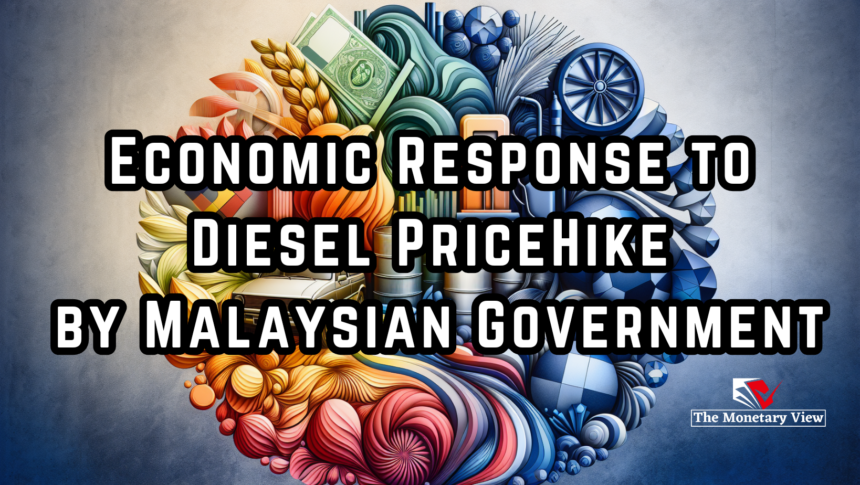The Malaysian government recently announced a hike in diesel prices, a move that has sparked widespread debate and concern among various sectors of the economy. This article explores the reasons behind the increase, its immediate and long-term economic impacts, and the measures being taken to mitigate the adverse effects on businesses and consumers.
Reasons Behind the Diesel Price Hike
Several factors have driven the Malaysian government’s decision to raise diesel prices:
- Global Oil Prices: Fluctuations in global crude oil prices significantly impact domestic fuel costs. Rising international oil prices often necessitate adjustments in local fuel prices to balance the subsidy burden and fiscal policies.
- Subsidy Reduction: The Malaysian government is gradually reducing fuel subsidies to allocate resources more efficiently and reduce fiscal deficits. Removing subsidies can help in redirecting funds towards critical areas such as healthcare, education, and infrastructure.
- Environmental Policies: Increasing diesel prices can serve as a step towards encouraging the use of cleaner energy sources and reducing carbon emissions, aligning with global environmental commitments.
Immediate Economic Impacts
The diesel price hike has several immediate effects on the Malaysian economy:
- Transportation Costs: Higher diesel prices lead to increased transportation costs. This impacts logistics, public transportation, and freight services, causing a ripple effect on the prices of goods and services.
- Inflation: The increase in transportation and production costs contributes to higher inflation. Essential goods and services, particularly those reliant on transportation, may see price increases, affecting the cost of living.
- Business Operations: Small and medium-sized enterprises (SMEs) that rely heavily on diesel for operations face higher operational costs. This can squeeze profit margins and potentially lead to higher prices for consumers.
Long-Term Economic Impacts
Over the long term, the diesel price hike can lead to several broader economic changes:
- Shift to Alternative Fuels: Sustained higher diesel prices may accelerate the shift towards alternative and renewable energy sources. Businesses and consumers might invest in electric vehicles and other greener technologies to reduce dependency on fossil fuels.
- Increased Efficiency: Businesses may seek ways to increase energy efficiency and optimize logistics to mitigate the impact of higher fuel costs. This could lead to innovation and improvements in operational efficiency across various sectors.
- Economic Diversification: Reduced reliance on fossil fuel subsidies can encourage economic diversification. The government can invest savings from subsidy reductions into other sectors, promoting balanced economic growth.
Government Mitigation Measures
To cushion the impact of the diesel price hike, the Malaysian government and other stakeholders are implementing several measures:
- Targeted Subsidies: The government is considering targeted subsidies for lower-income groups and critical sectors to alleviate the immediate financial burden caused by higher fuel prices.
- Public Transportation Investment: Increasing investment in public transportation infrastructure can provide affordable alternatives to private vehicle use, reducing overall fuel consumption and easing the cost burden on the public.
- Incentives for Green Technology: Offering incentives for the adoption of green technology, such as tax breaks for electric vehicles and renewable energy projects, can facilitate the transition towards a more sustainable energy landscape.
- Support for SMEs: Providing financial aid, low-interest loans, and grants to SMEs can help them adapt to the increased costs and invest in more efficient technologies.
Conclusion
The diesel price hike by the Malaysian government reflects broader economic and environmental strategies aimed at reducing fiscal deficits and promoting sustainable energy use. While the immediate impacts include higher transportation costs and inflation, long-term benefits could involve increased efficiency and a shift towards renewable energy. Through targeted subsidies, investments in public transportation, and support for SMEs, the government aims to mitigate adverse effects and foster a resilient, diversified economy.







